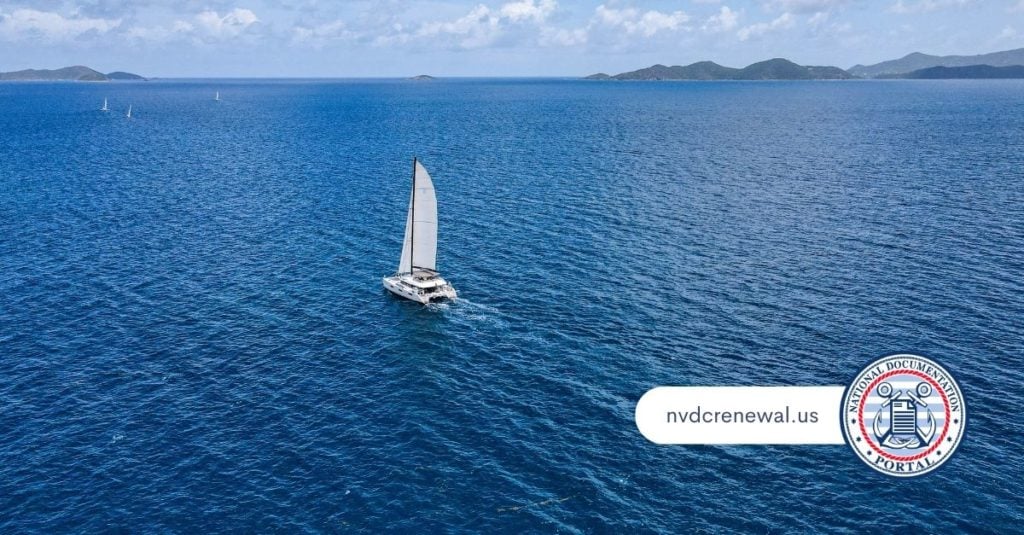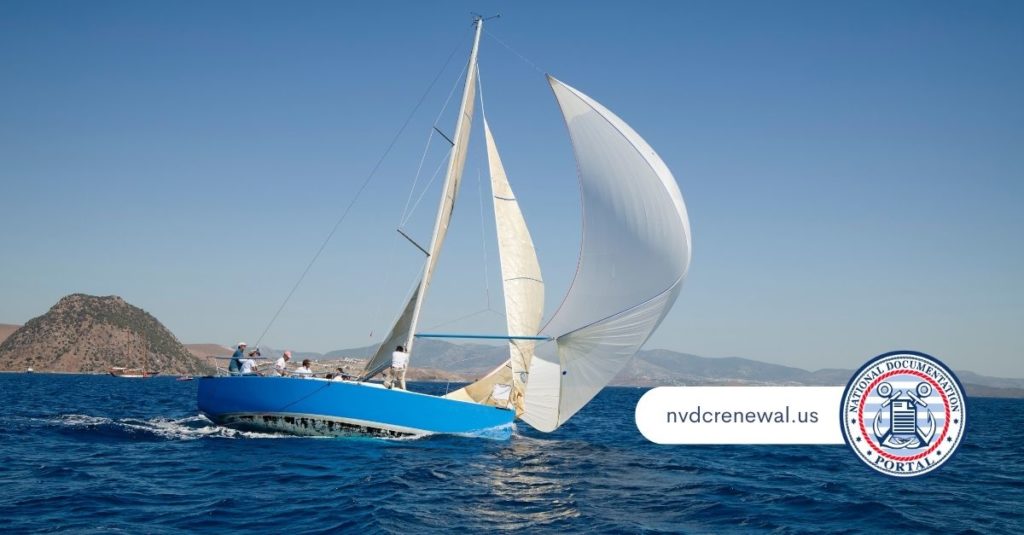No. A state-issued title and federal documentation are not the same. They represent two distinct systems of vessel registration. While a state title registers your boat within that specific state’s jurisdiction, USCG documentation provides a national registration with the United States government.

This is recognized across all fifty states and internationally. A key distinction is that a vessel can either have a state title or a Certificate of Documentation, but it cannot have both simultaneously.
If you choose to document your vessel federally, you must surrender its state title. Our platform offers a simplified application process to help you secure this national registration for your vessel.
The Core Differences: State vs. Federal Registration
The two systems serve different purposes and are governed by different authorities. Making the right choice depends on your vessel’s size, how you intend to use it, and your financing preferences.
Jurisdiction and Authority
The most fundamental difference lies in the governing body. State titling and registration are managed by an agency within that state, often the Department of Motor Vehicles (DMV) or a similar department of natural resources. The rules, fees, and requirements vary significantly from one state to another. A state registration is primarily for operating a vessel on that state’s inland and coastal waters.
In contrast, USCG documentation is administered by the National Vessel Documentation Center (NVDC), a federal agency under the United States Coast Guard.
This creates a single, unified system of registration that is consistent nationwide. A federally documented vessel is recognized as a U.S.-flagged vessel, a status that carries significant weight both domestically and in foreign ports.
Key Benefits of Choosing USCG Documentation
While state titling is sufficient for many boats, opting for federal USCG documentation offers several unique and powerful advantages (pending eligibility). These benefits become particularly important for larger vessels, commercial operations, and owners who plan to travel extensively.
Unrestricted Interstate Commerce
A federally documented vessel can move from the waters of one state to another without the need for reregistration or additional permits related to its titling. This unhindered movement is essential for vessels engaged in coastwise trade, such as charter boats carrying passengers or vessels transporting goods along the U.S. coastline.
It simplifies the logistics and legalities of operating a commercial enterprise across state lines, ensuring compliance with federal maritime law.
Conclusive Evidence of Nationality
For boaters who venture beyond U.S. waters, a Certificate of Documentation serves as conclusive, internationally recognized proof of the vessel’s nationality. When entering a foreign port, presenting this official federal document simplifies the customs and clearance process.
Foreign authorities readily accept the Certificate of Documentation as verification of the vessel’s origin and ownership, which can prevent delays and complications that might arise with state-level paperwork. This makes international travel smoother and more predictable for recreational and commercial mariners alike.
Advantages for Vessel Financing
Securing a loan for a significant vessel purchase often involves a “preferred ship mortgage.” This type of mortgage can only be recorded against a federally documented vessel. Lenders favor preferred ship mortgages because they provide a higher degree of security.
The mortgage is filed with the NVDC, creating a public record of the lien that is searchable via a vessel documentation search. This national system prevents a vessel from being sold without the lien being addressed and gives the lender priority over other claims.
Because of this enhanced security, many marine lenders require borrowers to obtain USCG documentation as a condition of the loan.
Eligibility and the Legal Framework
Not every boat is eligible for federal documentation. The requirements are established in federal law, specifically in the Code of Federal Regulations. 46 U.S.C. § 67.5 states that a vessel must measure at least five net tons to be eligible for documentation. Net tonnage is a measure of a vessel’s volume, not its weight, and many recreational vessels 25 feet or longer will meet this threshold. In addition to the size requirement, the vessel must be wholly owned by a U.S. citizen or a U.S. entity.
Navigating the Application Process
For a vessel owner, the process of moving from a state title to a federal Certificate of Documentation involves several steps. You must first apply for initial documentation and prove your citizenship and the vessel’s chain of title. Once the USCG approves the application, they will issue a Certificate of Documentation.
At this point, the vessel is officially documented, and any existing state title must be surrendered. A documented vessel should not be concurrently titled in a state. Our service simplifies this entire process by providing easy-to-use online forms. These can guide you through each requirement. That way, you can ensure your application is complete and accurate before it is submitted to the NVDC.
This helps you avoid common pitfalls and delays, getting your vessel properly registered at the federal level.
State Registration vs. Federal Documentation
A common point of confusion is the difference between state registration and state titling. A vessel can be state-registered without being state-titled. It is also important to note that even federally documented vessels may be required to register with the state in which they are principally operated.
This state registration is typically for tax purposes and to obtain the state registration decals that must be displayed on the vessel. We handle USCG documentation. If you have any questions about state registration, contact the appropriate division of your state government.
Help With USCG Documentation and More
When a documented vessel is also registered with a state, it does not receive a state title. The Certificate of Documentation remains its primary ownership credential. The state registration simply serves as a record for local authorities and confirms that applicable state taxes have been paid. You must check the specific requirements of your vessel’s primary state of operation to ensure compliance.
The annual process of documented vessel renewal does not impact this state-level requirement. Keeping both your federal documentation and any required state registrations current is a key part of responsible ownership. This dual compliance ensures your vessel is legally able to operate on all applicable waters.
Proper and current USCG documentation is the foundation of your vessel’s legal standing. To see all of the different ways we can help your vessel, we invite you to check out the rest of our portal.

